France is a world-class travel destination. It could be said that everyone is relatively familiar with the French culture and its significance and charm internationally. Architecture, Fashion, Culinary and more. This France Travel Guide shall showcase the many highlights of a French escapade especially in the most popular city of Paris– the most romantic city in the world.
Embrace a heightened Art de Vivre, the celebration of mundane routines made unforgettable and beautiful on your future France Travels. For a seamless and curated experience, consider exploring the exclusive Holiday packages from Dubai offered by AFC Holidays France Tours.
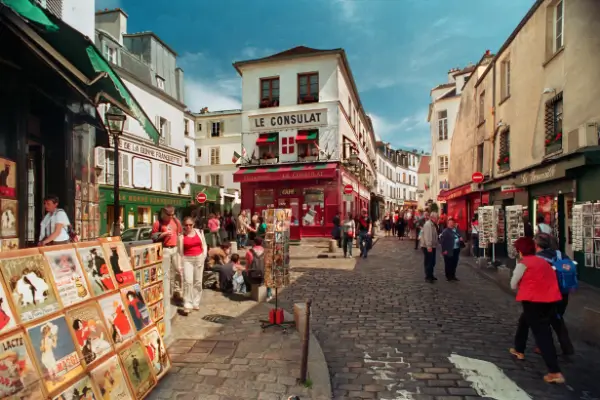
Language
FRENCH (FRANÇAIS) is the major language in France. A significant number of the locals also speak German and Maghrebi Arabic. English is not widely spoken in France, only less than 40% of the population are able to speak a significant degree of the language.
What Weather to Expect when Packing

France’s climate profile comprises five significant zones, what to expect and which popular French districts you may expect these climates:
As a guide make note that the standard seasonal timeline is Dec-Jan (Winter), Mar-May (Spring), Jun-Jul (Summer) Sep-Nov (Autumn).
1. Oceanic: Cool winters without freezing. Warm summers.
Includes: Paris, Nantes, and Bordeaux (Best time to visit: Mid-June to Mid-September)
Dress warmly during wintertime. Keep pashmina and cardigans handy. Stick to breathable comfortable clothes in the summer.
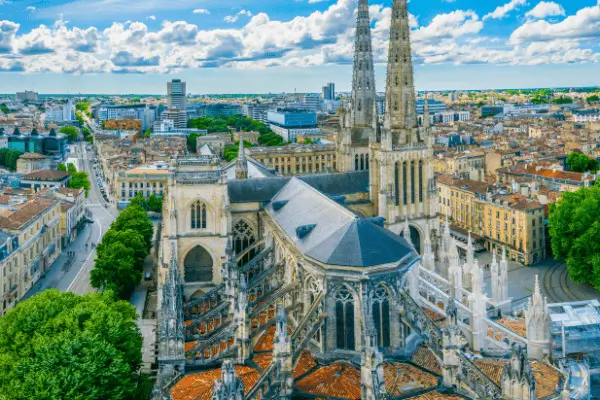
2. Semi Oceanic: Winters may be cold and dry or soft and moist. Warm to cool summers.
Includes: Reims and Toulouse (Best time to visit: Early June to late September)
Dress warmly during wintertime. Keep pashmina and cardigans handy. Stick to breathable comfortable clothes in the summer.
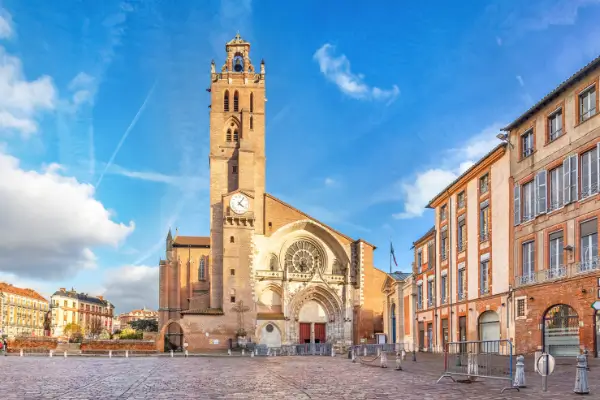
3. Mountainous: Winters are very cold. Summers are short and warm.
Includes: Clermont-Ferrand and Grenoble (Best time to visit: Mid June to Mid September)
Long sleeve shirts, sweaters, and fleece during winters. Comfortable clothes during summers

4. Continental: Very cold winters, Warm to cool summers. (Best time to visit: Mid June to early September)
Includes: Strasbourg, Dijon, and Lyon (Best time to visit: Mid June to Mid September)
Bring versatile clothes as there may be extreme temperature changes.
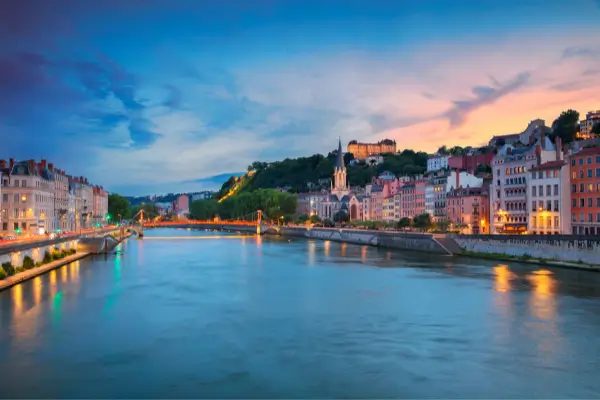
5. Mediterranean: Hot and dry summers. Wet winters.
Includes: Nice, Marseille, and Perpignan (Best time to visit: Late June to late August)
Bring breathable lightweight clothes in the summer and Use a pashmina, light jacket, or cardigan for comfort to take comfort from the ocean breeze. Dress warmly during wintertime.
France Religion

PREDOMINANTLY ROMAN CATHOLIC with over 60% of the population identifying with this religion. However, only a small fraction of this group practices religious worship.
With that in mind, travelers visiting France should practice respectful behaviors in and around places of worship.
Currency
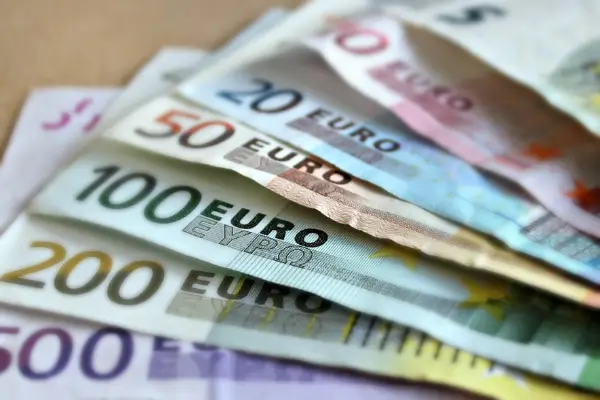
EURO (EUR) - To keep up with the rest of the European Union, France started utilizing the Euro in 2002, replacing the French Franc.
Money exchange establishments are frequently located near popular tourist areas around the cities, train stations, and airports. It’s generally advised to avoid these establishments unless you are exchanging a huge sum of money as they may ask for a higher commission rate for smaller exchanges. Always bring your passport / a valid ID when making exchanges.
Banks generally only make exchanges with account holders, there’s only a handful of others that may offer exchange services, they might charge 3 to 5 EUR per transaction.
Should you bargain?
Haggling and bargaining are not common practices in France. It would be more common in flea markets.
Should you leave a tip?
Tipping is not a standard practice in France. There is always a service charge included in the bill at a 15% rate. If you are satisfied with the service is it acceptable to leave a Euro or two on the table.
How much is a day in the France Travel?
Expect to spend a minimum of EUR 120 to 220 per day or more depending on interest and choice of activity. Food is very cheap and affordable in France (except for Indian food). The best souvenir to get is Eiffel Tower key chains from kiosks on the side of the streets.
Power Plugs and Socket Travel Guide in France
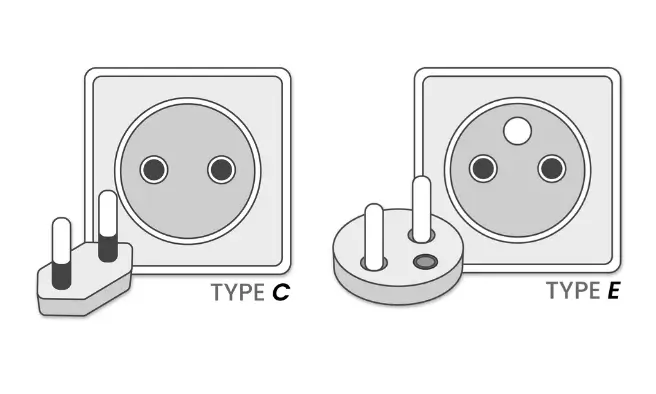
France uses Type C and E power plugs at 230 Volts and 50 Frequency. Bringing power plug adapters is advisable.
Getting Around and Staying Safe in France
France Travel Guide to Taxis
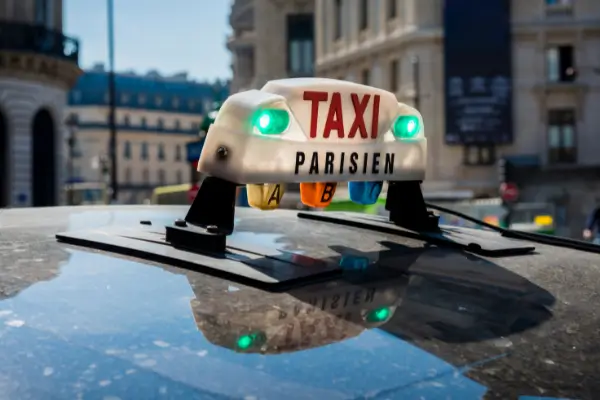
Traveling by taxi in France is not as simple and may be more expensive than expected. The ride cost depends on the time, the duration, and the traffic density.
The pick-up fee (or minimum fare) is EUR 2.60. If you’ve called the cab in for an immediate pick-up, it becomes EUR 4. If you’ve scheduled a cab in advance, it costs EUR 7 upon pick up.
There are also two factors that influence the cost. The first is the price per kilometer (EUR 1.09 – 1.61) and the second is the price per hour (EUR 33.48-42.41).
These factors depend on the time of day, expected traffic, and destination. So it can be expected that there is a great variation in rates if you’re simply going within the city, a suburban area, or going to more remote areas.
Of course, if you had called or scheduled a taxi for pick up and ended up being late, there will be waiting fees due, in some cases, there will even be a EUR 4/ per person fee if you’re traveling with more than 4 passengers.
Are there ride-hailing apps in France?
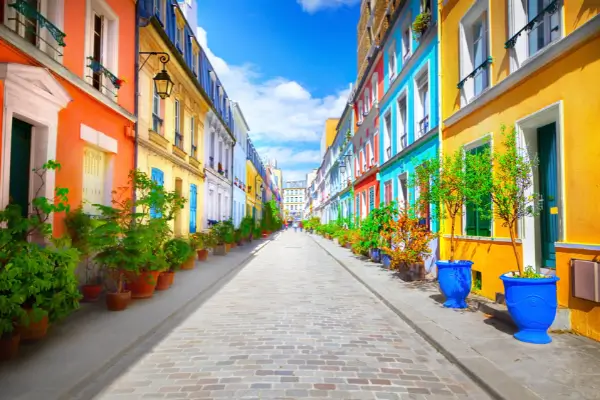
The best way to get around France is by using a ride-hailing app named Uber which is available for iOS and Android systems. Uber greatly reduces the fare rates compared to Parisian taxis with a Pickup fee of just EUR1.20, a Price per km or EUR 1.05, and a Price per minute of EUR 0.30
Staying Safe in France
First of all, a bit of typical advice for travelers is to avoid traveling by trains or buses or walking late at night in secluded spaces to stay safe.

Secondly, Pickpocketing in France is a very big problem, it’s among the top 10 pickpocketed cities in the world. Do be very aware of your surroundings and don’t trust easily, especially in popular tourist sites like the Eiffel Tower and the Sacré Coeur in Montmartre.
This applies when traveling anywhere, the best approach to staying safe is to keep your passport and other important documents in a place of safekeeping like the hotel safe or front desk. Avoid crowded places or stay wary of your person if it’s unavoidable.
France Travel Guide – The Checklist

Travel Guide for Internet Everywhere in France?
Firstly, The easiest place to acquire a SIM card is on arrival at the airport, especially at Charles de Gaulle. The trick to finding a local sim card in the city center is by typing in your targetted network provider into Google maps so you can be directed to the nearest outlet. Otherwise, it wouldn’t be so easy to acquire a Tourist sim card in France.
The 4 major network providers are Bouygues Telecom, SFR, Orange, and Free Mobile. Free Mobile is the best recommended among the four as it highly dominated the 5G Network coverage throughout the country.
Free Mobile may cost USD 19.99 for a month worth of data (210 GB).
You will need your passport to purchase any SIM Card in France.
France Travel Guide to Bringing Medications
Firstly, prepare preferred over-the-counter medicines. Importantly, Keep them in original containers with labels for easy identification. Firstly, try to only bring in small quantities or as necessary.
A simple first aid can include i.e. Diarrhea medicines, antacids, antihistamines, motion sickness, cough drops, decongestants, pain and fever relief, mild laxatives, bandages, and small antiseptic solutions accordingly. Lastly, don’t forget your masks and preferred sanitizer.
Moreover, Bring a doctor’s prescription for other prescriptions that you may have as needed. Similarly, check for the allowed amount of quantity depending on your stay.
Now that you’ve read this France Travel Guide

Finally, you are officially ready to travel to France. Don’t forget that you’re always free to contact your AFC Representative if you have any more concerns before your departure! Lastly, We wish you safe and happy travels!
You may also be interested in our recent post: United States Travel Guide Before You Go.
